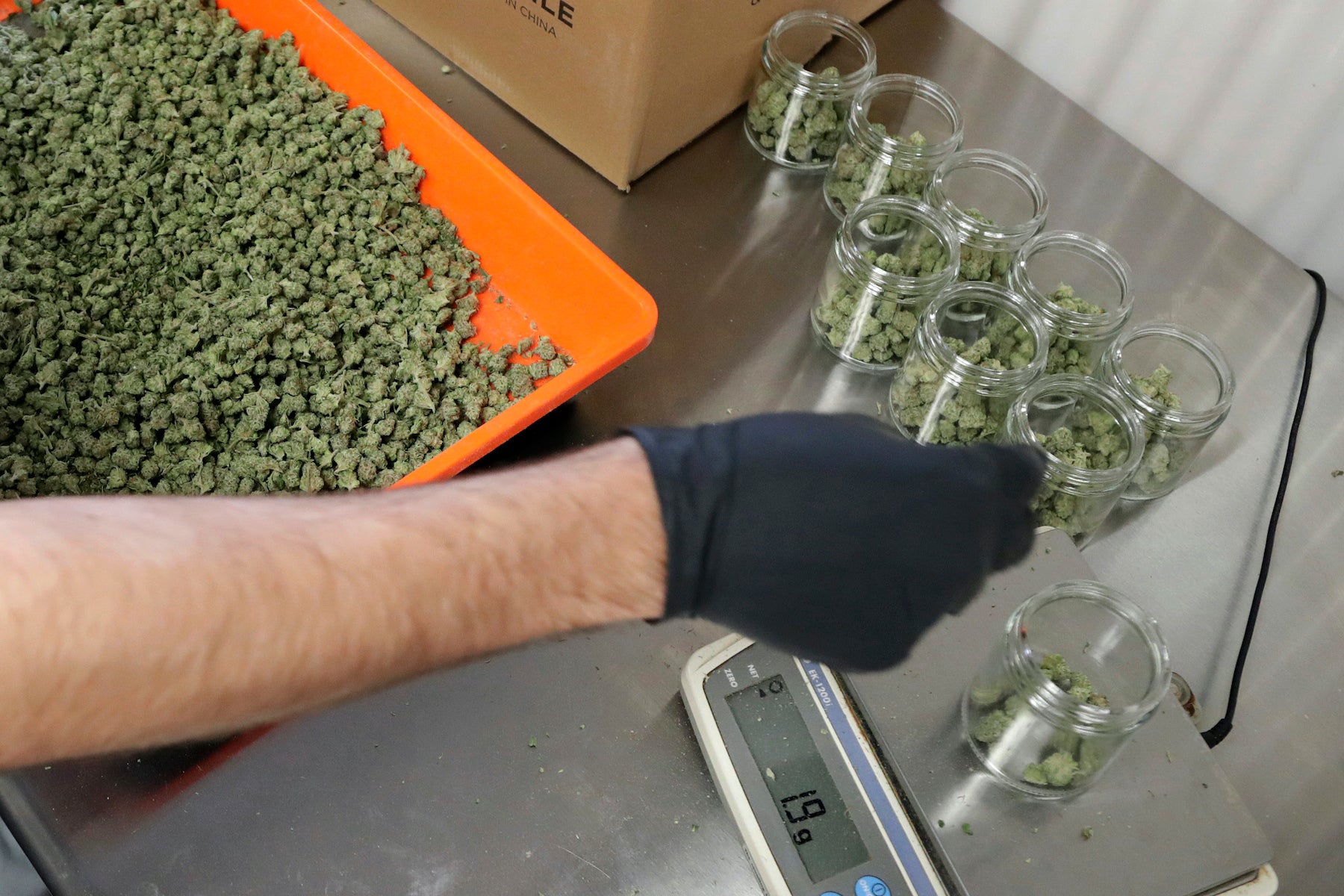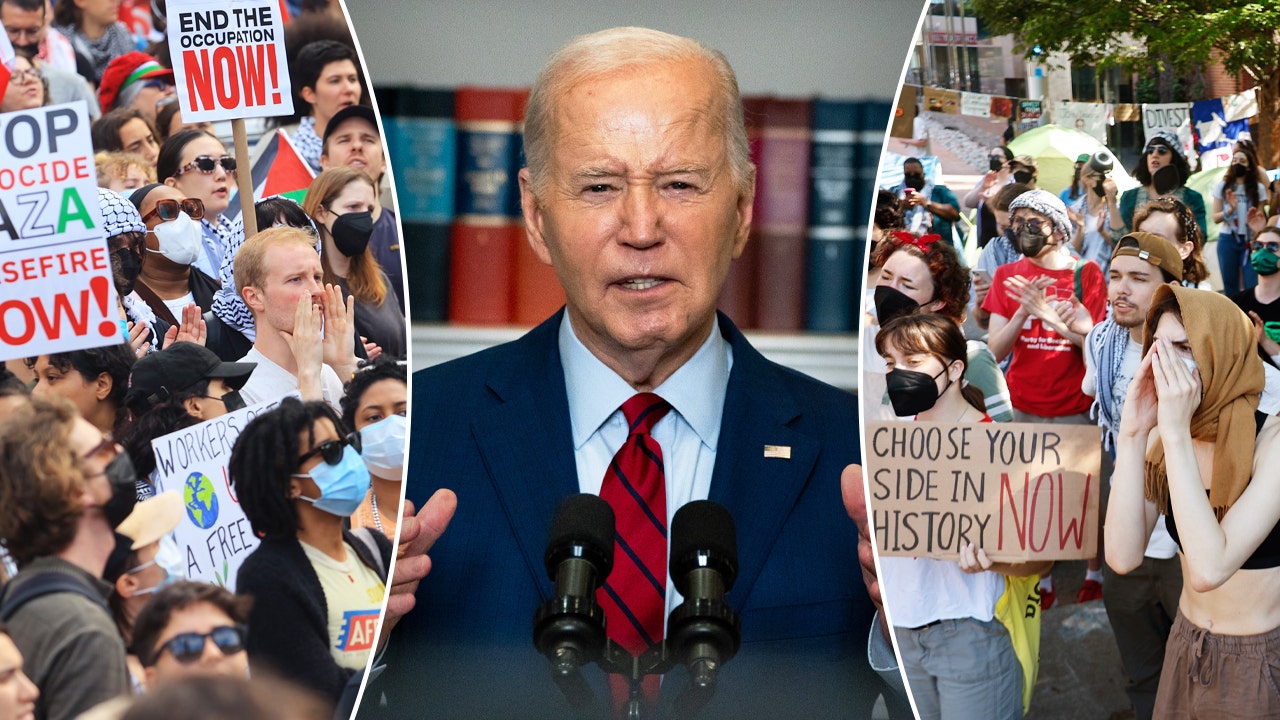New Jersey
2 tornadoes confirmed in New Jersey after Thursday’s storm

This story originally appeared on 6abc.
The National Weather Service says two tornadoes hit New Jersey during severe storms on Thursday afternoon.
One of the twisters touched down near the intersection of Ridge Road, Whites Bogs Road, and Range Road in the Browns Mills section of Pemberton Township in Burlington County.
The other was in the area of Tomlin Drive and Hazel Court in East Greenwich Township in Gloucester County.
The mid-afternoon storm that swept through the area prompted a tornado warning from the National Weather Service.
More details about the tornadoes, including the intensity rating, path length, and width, are expected to be released later this afternoon.

New Jersey
New Jersey’s recreational marijuana industry is booming. Here’s what you need to know

How much is marijuana taxed in New Jersey?
In addition to the standard 6.625% sales tax, a local municipality tax and cultivation and manufacturing taxes are levied on the products. The total tax ranges from 10% to 12%, which Rudder says is one of the lowest rates in the nation.
Can you not get hired or get fired for smoking marijuana in New Jersey?
Cannabis, unlike alcohol and most other drugs, can be detected in blood, urine and saliva tests, sometimes days and weeks after it is ingested, depending on the amount consumed, body metabolism and the level of Tetrahydrocannabinol (THC).
Rudder pointed out “the industry has been very supportive of trying to figure out techniques to make sure tests are more accurate.”
He said that, because cannabis is now widely accepted as medication for pain, anxiety and insomnia management, “a lot of employers, if they do have a drug [testing] policy program, they’re not including cannabis in that program anymore.”
Rudder noted some companies follow stricter federal drug policies and mandates, which are more conservative because marijuana consumption is illegal according to federal law.
Companies have the right to create their own drug-use policy and, most, he said “recognize what cannabis is.” “If [workers] are showing up sober at work and test positive for something that may have happened a couple of weeks ago, that becomes a complicating factor,” Redder added. “So a lot of them are just not testing for cannabis whatsoever.”
Can you grow marijuana plants at home in New Jersey?
New Jersey residents cannot grow marijuana plants at home, but the concept is under consideration in Trenton. Legislation could soon be introduced to allow Garden State residents to grow their own weed crop. Rudder said patients using cannabis to treat medical issues “should have the opportunity to grow their own medicine.”
Cannabis has been utilized around the world for medicinal purposes for thousands of years, he said.
“That is something that is going to happen, it needs to happen,” he said. “It must happen, it should happen.”
Can you travel with marijuana across state lines?
You are not allowed to carry cannabis from one state where it’s legal to another state where it is not, Rudder said.
So, if you’re a Pennsylvania resident 21 or older and you travel to Jersey to buy marijuana at a dispensary, you are not permitted by law to bring it back to Pennsylvania. But there is a loophole.
“There is no enforcement mechanism for that, so you’re not going to have DEA agents on the other side of the Walt Whitman Bridge ready to pounce on somebody that may have bought a few joints at a dispensary,” Rudder said.
New Jersey
Jury selection starts in Sen. Bob Menendez's corruption trial • New Jersey Monitor

Eight months after federal authorities indicted Sen. Bob Menendez in a wide-ranging corruption scheme, his trial got off to a slow start in Manhattan Monday, with the federal judge excusing almost a third of the 150 potential jurors called.
U.S. Judge Sidney Stein warned them the trial could last into the first week of July and briefly summarized the accusations in prosecutors’ 18-count indictment against New Jersey’s senior senator. Prosecutors say the senator accepted gold bars, cash, a luxury car, and more as bribes from three businessmen to disrupt several criminal probes and prosecutions, steer military arms and aid to Egypt, help one land a lucrative deal with a Qatari investor, help another gain a monopoly on meat imports to Egypt, and conspired to cover it all up as investigators closed in.
When the judge subsequently asked which potential jurors had substantial reasons they could not serve, dozens of hands shot up, and they were called one by one into a separate room for questioning by Stein and two members each of the prosecution and defense teams.
Some of those who sought an out cited scheduling conflicts, travel plans, and work or family obligations, while others told Stein they could not be fair. Some had very specific excuses. One juror told Stein he has an extreme fear of heights (Stein’s courtroom is on the 23rd floor, with windows overlooking the city).
Another said she has a trip scheduled to Europe later this month and plans to see Bruce Springsteen in Spain.
Stein noted that Springsteen recently announced new tour dates.
“You could catch him, probably in Giants Stadium,” he said.
Another potential juror told Stein she’s a housing attorney who gets “worked up” when she hears about public corruption and called the case “triggering.”
Another said she recently became a children’s librarian in Greenwich, Connecticut, and fretted about a lengthy trial’s impact on her job, as she hasn’t passed her probationary period there. That prompted Stein to rhapsodize about being a children’s librarian in another life.
“I’m telling you, that’s what I would do, children’s librarian,” he said.
Back in the courtroom, Menendez sat alone at a defense table and stared forward silently, his fingers steepled in front of him in the hushed courtroom. His co-defendants, businessman Wael Hana and real estate developer Fred Daibes, sat beside their attorneys at a separate table.
By mid-afternoon, Stein had excused 38 jurors from an initial pool of 100 and called another 50 people in for questioning. About a dozen are expected to be excused from that last batch when the initial round of questioning wraps up Tuesday.
It was an anticlimactic start for a trial that promises plenty of drama, given the more salacious parts of prosecutors’ indictment and the details that have emerged since — that the bribes typically went to and through the senator’s wife, Nadine; that he probably will blame her; that he used his powerful position as head of the Senate Committee on Foreign Relations to act as a foreign agent; and that he may explain his hoarded riches as a trauma response to his father’s suicide and his family’s refugee experience.
The senator, his attorneys at his side, breezed past a mob of photographers and television journalists Monday morning on his way into the Daniel Patrick Moynihan federal courthouse, just two blocks from where former President Trump’s trial is unfolding.
He wore a navy suit with his Senate pin on the lapel and went through security like everyone else, doffing his belt before walking through the metal detector. In the courtroom, he smiled and chatted with his attorneys as they waited for proceedings to start.
Before calling in prospective jurors, Stein scolded attorneys who filed a flurry of briefs and motions over the weekend.
“There’s been too much gamesmanship here, and I want it to end now,” he barked. “Everybody has to operate in good faith here. I’m not sure I’ve seen it.”
The trial resumes Tuesday morning, with attorneys expected to pick a jury from the remaining 100 or so potential jurors by interrogating them further on everything from their understanding of halal food to their thoughts on keeping cash at home instead of in a bank account to their perceptions of New Jersey residents, politicians, wealthy people, immigrants, Coptic Christians, Egypt, and more.
GET THE MORNING HEADLINES DELIVERED TO YOUR INBOX
New Jersey
NJ state Senate passes bill that will dismantle public access to government records, data
3-minute read
Legislation that would gut public access to government records and data was passed by the state Senate on Monday. It was to be considered by the Assembly later Monday afternoon.
State Senate President Nick Scutari said after the Senate’s voting session that the legislation — billed as a reform of the New Jersey Open Public Records Act — was an effort to save taxpayers money.
While the bill was under discussion last week in the Senate budget committee, lawmakers said it was focused on limiting data brokering and commercial access. Provisions dealing with regulation of data brokers, however, were removed from the final version of the bill.
Scutari also said the Legislature — controlled by Democrats — has been exempt since the bill was introduced and that the legislation’s sponsors are listening to the concerns of small-town New Jersey mayors.
“This isn’t about us. This is what I heard on my first day as Senate president at the League of Municipalities when I wasn’t even sworn in yet,” he said.
There were 21 votes in favor and 10 votes against. Nine state senators did not vote, including Sens. Anthony Bucco, James Holzapfel and Shirley Turner, who were not present.
One lawmaker noted after the session that not voting is the equivalent of a no but shows respect to the effort of the sponsors.
State Sen. Andrew Zwicker voted against the bill in committee both in March and last week. He said after the voting session, “From everything I understand this will make it more difficult [to get records], and that is my concern.
“I think we made it better in the amendments, but it didn’t go far enough for me to vote for the bill,” Zwicker said.
Will government records ‘be readily available?’
The bill cleared committee in both chambers on Thursday and Friday after hours of testimony in opposition from advocates.
The proposed law initially cleared committee in the upper chamber in March but was pulled from consideration in an Assembly committee that same week just minutes before it was set to start.
There were no such delays this month, though, and while there were votes against the bill in each committee — three in the state Senate and one in the Assembly — it ultimately moved forward.
The most recent version of the bill removes the presumption of access clause at the beginning of the OPRA statute, which notes that “government records shall be readily accessible,” and the Senate Majority Office said that section “will remain intact as part of the OPRA law.”
“That section is not being removed from the OPRA law, just from the bill,” spokesperson Richard McGrath said. “It came out of the legislation because that section of the law is no longer being amended.”
While advocates from groups like the ACLU, New Jersey Working Families and New Jersey Citizen Action have been outspokenly opposed to the bill since it was first introduced in March, not everyone thinks it’s a bad bill.
Representatives from organizations including the League of Municipalities, New Jersey School Boards Association and New Jersey Association of Counties have been supported the legislation. Some spokesmen for those organizations — including the league’s executive director, Michael Cerra — said they would have liked the legislation to go even further to restrict public access to government records and data.
Since the bill was first heard in committee in March, Republicans in both chambers have joined as sponsors — state Sen. Anthony Bucco in the upper chamber and Assemblywoman Victoria Flynn in the lower chamber.
Our view: Amended OPRA bill an absolute sham. Gov. Murphy, veto this affront to democracy
What will the legislation do to gut OPRA?
The updated bill includes the renewed ability to make anonymous requests and the removal of exemptions for call and email logs and digital calendars.
It also implements stricter requirements on how to request things like texts and emails including specific accounts, times, topics and titles.
There are modifications to the provision limiting access to metadata to allow for access only to the “portion that identifies authorship, identity of editor, and time of change.”
Language restricting data brokers and commercial entities that resell information obtained through OPRA was removed.
The parts that remain mostly intact include one of the most controversial, known as the fee-shifting provision. This provision previously required public record custodians that had not, according to a judge, properly provided records to pay the requesters’ attorney fees.
The bill initially changed that to say winners of OPRA lawsuits “may” be entitled to legal fees if the public agency is found to have knowingly violated the law or unreasonably denied access. In its amended form, the bill still eliminates the attorney fee requirement but does allow for judges to decide that fees are warranted if the denial was unreasonable, if the agency “acted in bad faith, or knowingly and willfully violated” the law.
The amendments also include language that would allow for a court to “issue a protective order limiting the number and scope of requests the requester may make” if they “sought records with the intent to substantially interrupt the performance of government function.”
The legislation was first enacted in 2002 and requires local, county and state government entities to provide the public with access to government records in New Jersey.
Katie Sobko covers the New Jersey Statehouse. Email: sobko@northjersey.com
-

 Politics1 week ago
Politics1 week agoHouse Dems seeking re-election seemingly reverse course, call on Biden to 'bring order to the southern border'
-

 World1 week ago
World1 week agoGerman socialist candidate attacked before EU elections
-

 World1 week ago
World1 week agoSpain and Argentina trade jibes in row before visit by President Milei
-

 Politics1 week ago
Politics1 week agoRepublicans believe college campus chaos works in their favor
-

 Politics1 week ago
Politics1 week agoFetterman says anti-Israel campus protests ‘working against peace' in Middle East, not putting hostages first
-

 News1 week ago
News1 week agoUS man diagnosed with brain damage after allegedly being pushed into lake
-

 World1 week ago
World1 week agoGaza ceasefire talks at crucial stage as Hamas delegation leaves Cairo
-

 Politics1 week ago
Politics1 week agoAnti-Israel groups accuse Chicago, DNC of trying to ‘protect’ Biden from protests at 2024 Dem convention














